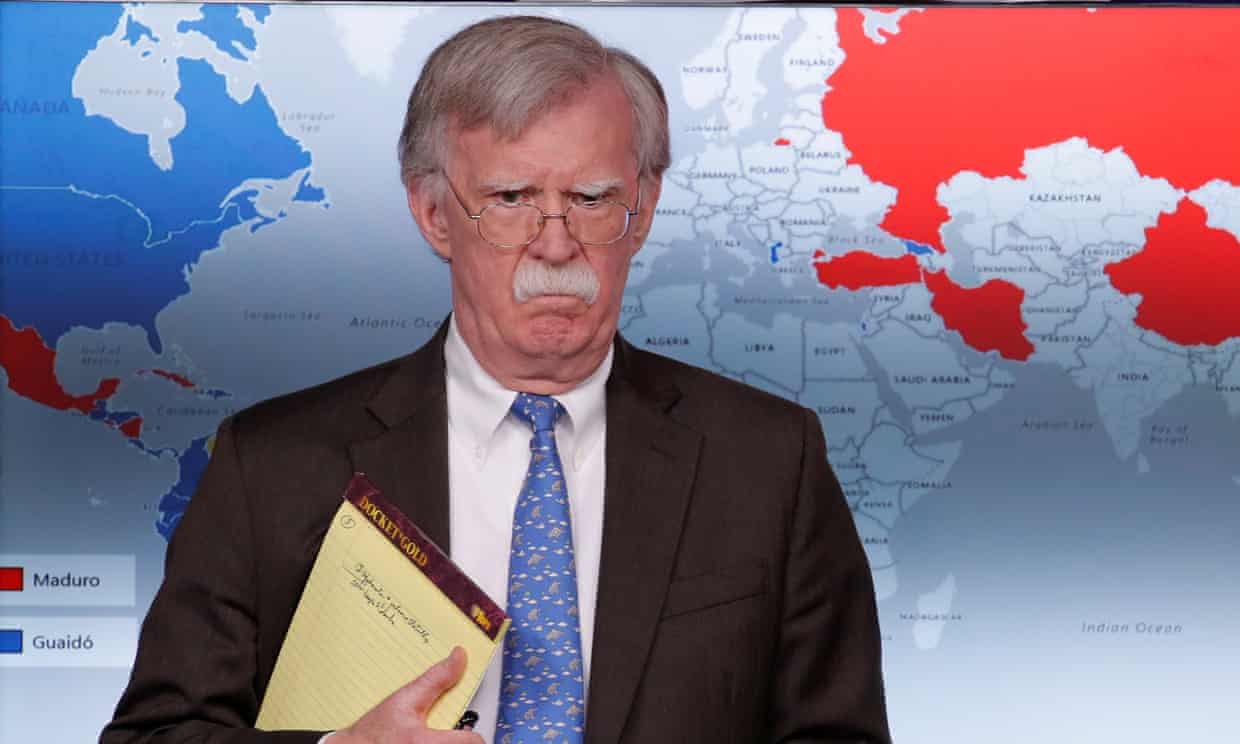US should set up Iran-Gulf confidence-building measures

John Bolton is out. “Mr. Tough Guy,” as President Donald Trump mockingly referred to him, has been fired or asked to resign. It has been reported that Trump and his national security adviser clashed over how to deal with Iran. Now that the US is less likely to use force, as advocated by Bolton, the question is what kind of strategy can work with Iran? What kind of soft power can the US use? Of course, there are financial incentives and Trump is toying with the French proposal of extending a $15 billion credit line to Iran. However, there is one small problem facing Trump: Diplomacy cannot work without good faith. The Iranians do not trust him or the US generally.
The more Iran gets cornered, the more it activates its tentacles around the region. On Saturday, the Houthis — Iran’s proxy in Yemen — claimed responsibility for launching 10 drones on two Saudi Aramco facilities, disrupting production. US Secretary of State Mike Pompeo called on “all nations” to unite against Iran. Obviously, tensions have reached a new high and the skirmishes risk disrupting the steady flow of oil. In the current situation, the US is facing two options: Either de-escalate the tensions in order to prepare for negotiations or to use force. Sen. Lindsey Graham suggested a retaliatory strike on Iranian oil refineries. However, a hit on Iranian soil might lead to war. And a strike on Iran would help its leadership unite the people. The leaders could frame it as an assault on Iranian sovereignty and hence they could sell their belligerent actions to the masses as self-defense. It is in everyone’s interest to avoid an open military confrontation. Therefore, the first option is the better one.
For Iran, the US is the “Great Satan.” In the 1950s, the US toppled the democratically elected government of Mohammed Mosaddegh. The savage SAVAK, the secret police that subsequently terrorized the people at the time of the shah, was established and trained by Maj. Gen. Norman Schwarzkopf Sr. More recently, in 2015, the US entered into the nuclear deal with Iran, only for the next president to unilaterally withdraw. Therefore, it will be very difficult to build trust with the Iranians, especially as Supreme Leader Ali Khamenei on Tuesday ruled out talks with the US “at any level.”
An easier entry point would be through the Arab Gulf states. However, there is no trust between Iran and the Gulf states either. The Iranians blame the Arab nations for supporting and financing Saddam Hussein during the Iran-Iraq War. It would be beneficial for the US to put the Arab Gulf at the forefront of its diplomatic effort.
One of the main flaws of the defunct nuclear agreement was that it was brokered behind the back of the Arab Gulf states.
Dr. Dania Koleilat Khatib
One of the main flaws of the defunct nuclear agreement, if not the main flaw, was that the deal was brokered behind the back of the Arab Gulf states. The rationale of the Obama administration was that the issue was complex enough and the involvement of Saudi Arabia, for example, would only have made it even more complicated. However, when Arab Gulf states realized that they had been kept in the dark, their insecurity increased and they started mistrusting the US. This ultimately encouraged them to craft an independent policy in countering Iran, which rendered the situation in the region even more difficult. Now is the Trump administration’s chance to rectify this mistake by involving the Arab Gulf nations in the negotiations with Iran. As a first step, in order to build trust, the US should encourage Iran and its Arab neighbors to engage in confidence-building measures.
The first issue to be handled can be conventional military capabilities; namely ballistic missiles. A series of meetings should be set up between Iranian and Arab Gulf officials to discuss and lay the foundations for measures that would reassure both parties. Such measures could include advance notifications in case of missile testing. Every time Iran tests one of its missiles, the Arab Gulf gets edgy. But Iran could warn its neighbors by informing them about the timing, location and trajectory. This way they would not get nervous and think the missile might be targeting them. Other measures can include allowing neighbors to conduct site visits and transparency about missile stock. Ballistic missiles can be a start and, later on, the measures can extend to other areas.
Though the Arab Gulf has a wide range of thorny issues with Iran and its ballistic missile program is only a fraction of this, the trust-building has to start somewhere and this is a feasible area. Other more crucial issues — such as Iran’s support of non-state actors such as the Houthis and Hezbollah — might be difficult at this point. However, once a certain level of trust is built up, then talks can migrate to those issues. Such confidence-building measures are a long shot, but they are worth trying and are definitely a better option than war.
- Dr. Dania Koleilat Khatib is a specialist in US-Arab relations with a focus on lobbying. She holds a Ph.D. in politics from the University of Exeter and is an affiliated scholar with the Issam Fares Institute for Public Policy and International Affairs at the American University of Beirut.








































